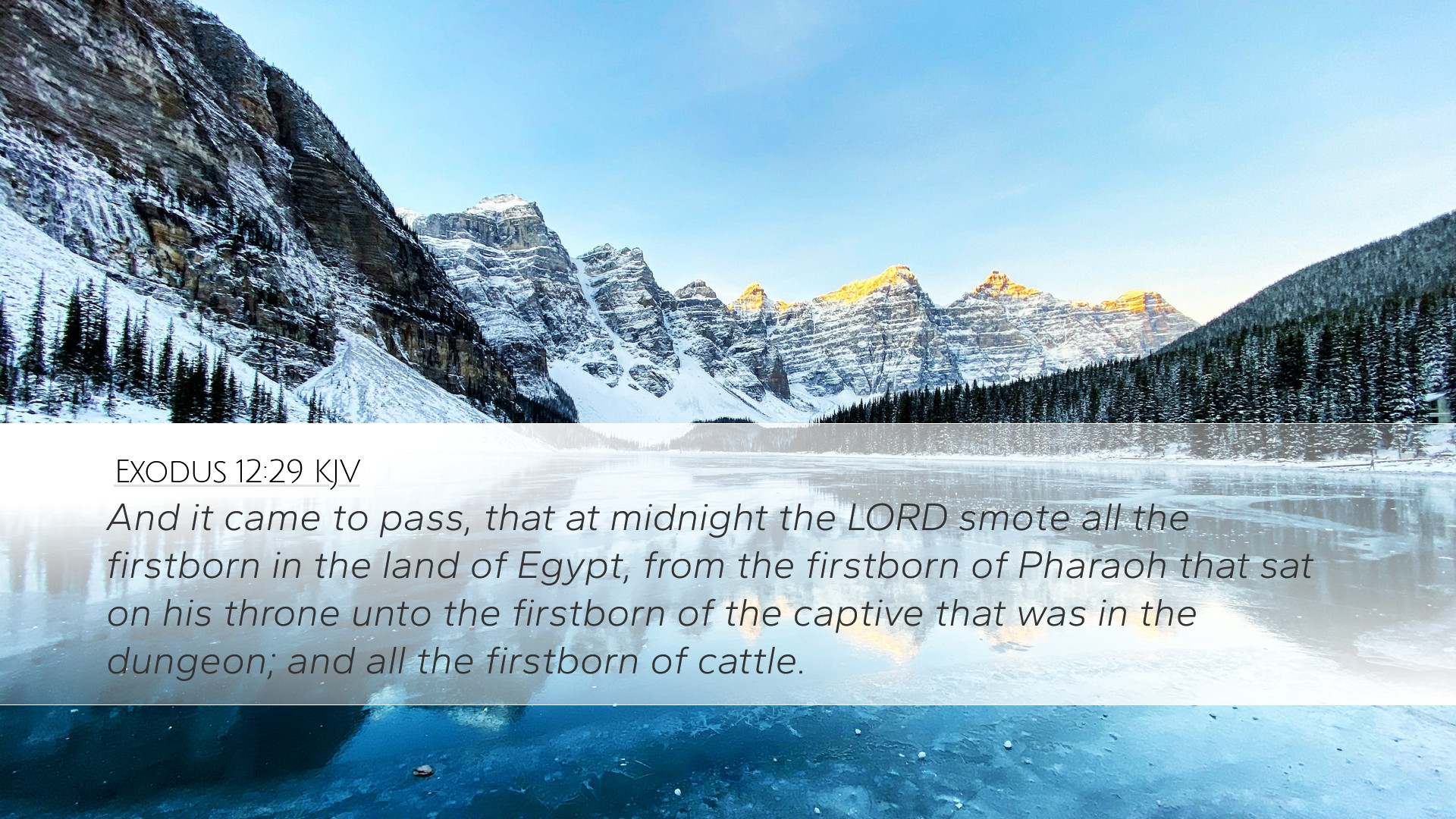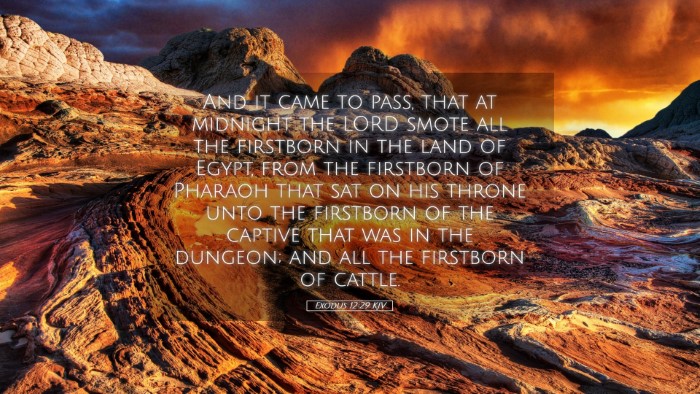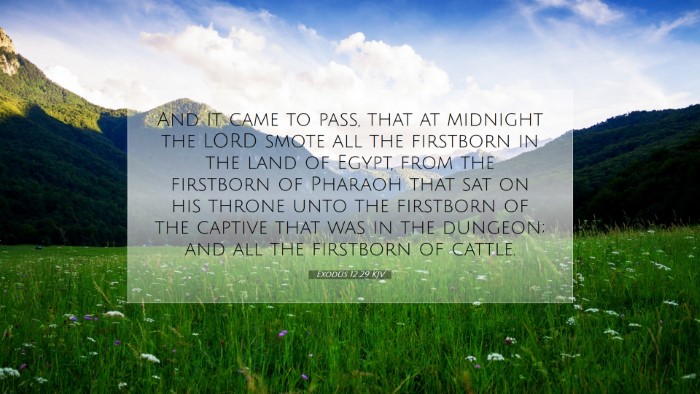Exodus 12:29 (KJV): "And it came to pass, that at midnight the Lord smote all the firstborn in the land of Egypt, from the firstborn of Pharaoh that sat on his throne unto the firstborn of the captive that was in the dungeon; and all the firstborn of cattle."
This pivotal verse marks a moment of profound significance in the narrative of Israel's liberation from Egyptian bondage. The death of the firstborn is a central theme in the Passover account, underscoring both God's judgment upon Egypt and His protection over the Israelites through the blood of the lamb. Below, we explore the multifaceted insights drawn from public domain commentaries, providing a rich tapestry of theological and practical reflections on this verse.
Contextual Overview
The events leading up to Exodus 12:29 depict the culmination of the plagues inflicted upon Egypt, a direct response to Pharaoh's obstinacy in refusing to release the Israelites. The nature of these plagues illustrates God's sovereignty and the gravity of disobedience.
Theological Implications
- Divine Judgment: Matthew Henry asserts that this act demonstrates God’s righteous judgment against Egypt's sin, particularly its oppression of God’s people. The death of the firstborn serves as the ultimate plague that not only affects the ruling class but also extends to individuals of lower status, indicating that God's judgment is impartial.
- The Concept of Firstborn: Albert Barnes mentions the historical significance of the firstborn in ancient cultures, often representing strength and expectation. The death of the firstborn, thus, symbolizes a tremendous loss for Egypt, while simultaneously signifying God's claim over Israel as His firstborn (Exodus 4:22).
- Salvation through Sacrifice: Adam Clarke draws attention to the protective measure taken by the Israelites—marking their doors with lamb's blood. This prefigures the sacrificial system that would later become central to Israelite worship and ultimately connects to the New Testament understanding of Christ as the Lamb of God, whose sacrifice brings salvation.
Historical Context
This plague was not only an act of judgment but also a significant moment in the history of Israel. The cultural practices of the Egyptians and the spiritual ramifications of their idolatry are highlighted by Clarke, who emphasizes the stark contrast between the Egyptians' worship of false gods and Israel’s covenant with the one true God.
Pastoral Applications
For pastors and theologians, this verse can be utilized to illustrate God’s justice as well as His mercy:
- God's Justice and Mercy: Preaching on this passage can emphasize the dual nature of God’s character: He is both just and merciful, punishing disobedience yet providing a means of salvation for those who adhere to His commands.
- Call to Obedience: The importance of obeying God's instructions is underscored. Just as the Israelites were instructed to sacrifice the lamb and mark their doorposts, believers today are called to adhere to God's Word and structure their lives according to His will.
- Facing Spiritual Battles: Clarke points out that understanding the gravity of sin and its consequences is crucial for contemporary believers. This passage can serve to encourage Christians to recognize and confront sin in their lives, embodying the profound lessons of redemption and sacrifice inherent in the Passover narrative.
Conclusion
Exodus 12:29 stands as a critical juncture in the Exodus narrative, encapsulating themes of judgment, sacrifice, and ultimately, liberation. The insights provided by Matthew Henry, Albert Barnes, and Adam Clarke amalgamate to form a comprehensive understanding that enriches theological discourse and pastoral practice. As we reflect on this verse and its implications, we are reminded of God's overarching plan of redemption, culminating in the New Testament fulfillment with Jesus Christ. Therefore, this scripture beckons us not only to recognize God's holiness but also to celebrate His redemptive work in our lives.


